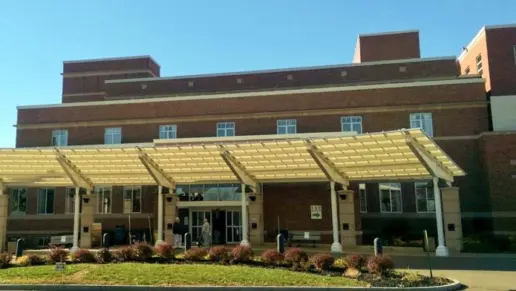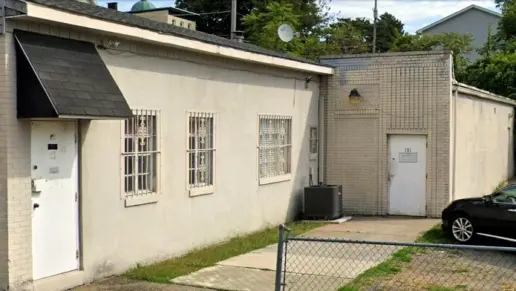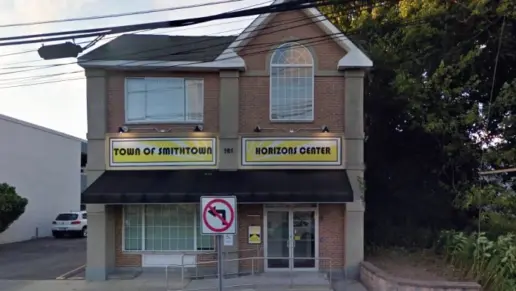I've been going to this clinic for a couple of years it's a nice clean atmosphere and the therapist I had was very good. All of a sudden they just drop me, with no referrals to see a new therapist. I would like to go back to the same Center but they are giving me the runaro ...
About Metropolitan Center For Mental Health
Metropolitan Center for Mental Health is a mental health and substance abuse treatment center. You’ll find ’em located in New York City, New York. They provide comprehensive care and addiction treatment specific to each client’s needs. Its programs are designed to make mental health more accessible and better for those who need it the most.
Mental health programs are extensive and cover all ages ranging from children and adolescents to adults. Individual therapy is also available through the center. Patients can work closely with licensed therapists on topics like anxiety and depression, trauma response patterns and other mental health issues. Treatment is designed to cater to the individual, focusing on providing clients with the knowledge and skills they need to understand their mental health through evidence-based therapies.
As part of their offerings, the center also facilitates family therapy sessions where everyone can come in a safe environment and work through disagreements to improve communication. This can foster healthy relationships and prevent stress that can cause a relapse.
FAIR Families and Individuals in Recovery is a noteworthy substance abuse program implemented at the Metropolitan Center for Mental Health. This program is tailored to those individuals who struggle with drug and alcohol addiction and provides a treatment path for changing their lifestyle to discontinue use on either a short-term or long-term basis. They recognize that addiction is a complex disease and use individual counseling, group therapy and family engagement to work through the physical, emotional and mental dimensions of this illness.
The process of recovery is centered around counseling with a focus on coping skills, triggers and resiliency to stay sober for the rest of your life. Group therapy sessions offer participants a safe space to open up and take part in the community of support while sharing stories with others who are going through similar experiences. They can also hear perspectives from those ahead on their journey or find new ways help is available for people wanting more knowledge about keeping sober efforts alive.
Rehab Score
Gallery


Location
Accepted Insurance
Other Forms of Payment
Medicaid is a state based program that helps lower-income individuals and families pay for healthcare. Medicaid covers addiction treatment so those enrolled can use their coverage to pay for rehab. When a program accepts Medicaid the client often pays very little or nothing out of their own pocket.
Private insurance refers to any kind of healthcare coverage that isn't from the state or federal government. This includes individual and family plans offered by an employer or purchased from the Insurance Marketplace. Every plan will have different requirements and out of pocket costs so be sure to get the full details before you start treatment.
Self-pay involves paying for treatment out of your own pocket. You can use savings or credit, get a personal loan, or receive help from family and friends to fund your treatment. If you don't have insurance or your insurance plan doesn't cover a specific program, self-pay can help ensure you still get the care you need.
Financial aid can take many forms. Centers may have grants or scholarships available to clients who meet eligibility requirements. Programs that receive SAMHSA grants may have financial aid available for those who need treatment as well. Grants and scholarships can help you pai for treatment without having to repay.
Sliding scale payments are based on a client's income and family size. The goal is to make treatment affordable to everyone. By taking these factors into account, addiction recovery care providers help ensure that your treatment does not become a financial burden to you or your family, eliminating one barrier to care.
Medicare is a federal program that provides health insurance for those 65 and older. It also serves people under 65 with chronic and disabling health challenges. To use Medicare for addiction treatment you need to find a program that accepts Medicare and is in network with your plan. Out of pocket costs and preauthorization requirements vary, so always check with your provider.
Addiction Treatments
Levels of Care
Treatments
Mental health rehabs focus on helping individuals recover from mental illnesses like bipolar disorder, clinical depression, anxiety disorders, schizophrenia, and more. Mental health professionals at these facilities are trained to understand and treat mental health issues, both in individual and group settings.
Programs



Clinical Services
Whether a marriage or other committed relationship, an intimate partnership is one of the most important aspects of a person's life. Drug and alcohol addiction affects both members of a couple in deep and meaningful ways, as does rehab and recovery. Couples therapy and other couples-focused treatment programs are significant parts of exploring triggers of addiction, as well as learning how to build healthy patterns to support ongoing sobriety.
Research clearly demonstrates that recovery is far more successful and sustainable when loved ones like family members participate in rehab and substance abuse treatment. Genetic factors may be at play when it comes to drug and alcohol addiction, as well as mental health issues. Family dynamics often play a critical role in addiction triggers, and if properly educated, family members can be a strong source of support when it comes to rehabilitation.
Group therapy is any therapeutic work that happens in a group (not one-on-one). There are a number of different group therapy modalities, including support groups, experiential therapy, psycho-education, and more. Group therapy involves treatment as well as processing interaction between group members.
In individual therapy, a patient meets one-on-one with a trained psychologist or counselor. Therapy is a pivotal part of effective substance abuse treatment, as it often covers root causes of addiction, including challenges faced by the patient in their social, family, and work/school life.
Trauma therapy addresses traumatic incidents from a client's past that are likely affecting their present-day experience. Trauma is often one of the primary triggers and potential causes of addiction, and can stem from child sexual abuse, domestic violence, having a parent with a mental illness, losing one or both parents at a young age, teenage or adult sexual assault, or any number of other factors. The purpose of trauma therapy is to allow a patient to process trauma and move through and past it, with the help of trained and compassionate mental health professionals.
Amenities
-
Private Setting
Staff

Executive Director

Director of Operations & IT Systems

Director of Clinical Services

Medical Director

Director of FAIR Program

Director of Intake & Referral Department

Director of Change Management & Strategy Head of Clinical Student Program

Director of Child & Adolescent Program, MCMH Compliance Officer
Contact Information
160 West 86th Street
New York, NY 10024







